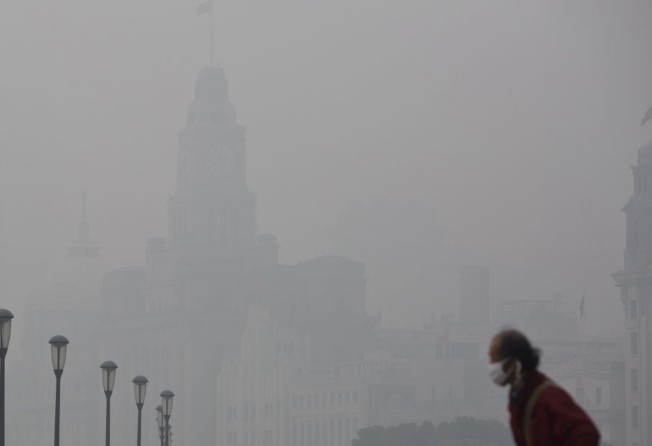It's as clear as day - China needs its own Clean Air Act
The new leadership has paid greater mind to pollution, but much more needs to be done to ease the country's worsening smog crisis

Last week, a pleased Shanghai doctor who performed a successful cataract operation gingerly led his patient to the window for him to see the city's skyline for the first time, but instead of a delightful cry, the patient batted his eyelids several times and began to shout at the doctor for botching the job.
That is one of the dozens of jokes flying around the country's social media as Shanghai and more than 100 other major mainland cities were enveloped in the choking and hazardous smog last week.
Visibility in some eastern cities was reduced to less than 50 metres and to less than five metres in the worst hit places, where PM2.5 concentrations hit 500 micrograms per cubic metre. The World Health Organisation's recommended level for the pollutant is 25mcg per cubic metre.
To be sure, air quality in China typically plummets in winter months as the heating systems in cities north of the Yangtze River depend on coal. But the scale and severity of the smog last week was the worst in recent memory as it covered not only the northern cities like Beijing but also a large number of cities south of the Yangtze which do not burn coal for heating, including Shanghai, Nanjing , and other parts of the Yangtze River delta.
According to the national observatory, 104 cities in more than 20 provinces last Friday reported PM2.5 readings at more than 300, classified as severe, the highest in the six-level rating system.
The authorities blamed the lack of wind, coal burning in the north, exhaust emissions from the massive number of cars, and industrial pollution from the large concentration of steel and cement factories in the Yangtze River delta. But officials failed to explain that, given that none of the above factors is new, why was the smog last week the most severe in recent years.
Fortunately for tens of millions of suffering mainlanders, relief seems to be on the way as the national observatory forecast strong winds to blow across much of the country starting from yesterday afternoon.
It is sad to note that despite the severity of the smog and its hazardous impact on people's lives, neither the central government leaders nor the officials from those affected cities have come out publicly to apologise and discuss ways to address the issue.
Unfortunately, it has become one of those issues in China that affects everyone badly but for which no one is willing to take any responsibility.
After 35 years of double-digit growth rates, which turned the country's economy into the world's second largest, mainlanders are now suffering fully from the negative impact.
The smog is getting worse daily and reaching almost all corners of the country. Earlier this year, even Hainan , well known for its blue skies and sandy beaches, was covered in heavy smog.
More than 70 per cent of the country's rivers and lakes are heavily polluted and deemed unfit even for animals to drink and much of the country's underground water was also equally polluted.
Media are regularly reporting on diseases linked directly to pollution. Last month it emerged that an eight-year-old girl who lived beside a busy road in Jiangsu had become the mainland's youngest lung cancer patient. Her doctor was quoted as saying her illness was the result of her breathing in pollutants from car exhaust fumes.
Many more mainlanders now say that they want to migrate to other countries and foreign businessmen refuse to relocate to the mainland partly because of the pollution.
The new leadership under President Xi Jinping has shown more willingness to tackle pollution as it tries to slow the breakneck economic growth.
But the efforts have been half-hearted at best. Last month, the Communist Party held its landmark meeting and unveiled its blueprint which was supposed to bring the country's development to a new level.
It indeed contained some exciting grand goals and slogans including allowing the market forces to play "the decisive" role in the economy and boosting mainlanders' living standards. But it contains little on how to tackle environmental degradation.
Last week, photos comparing today's masked mainlanders wallowing in thick smog to the Londoners facing the similar situation in the 1950s and 1960s went viral on the internet. The smog killed thousands of people in Britain before the authorities there took decisive steps to introduce the Clean Air Act to bring pollution under control.
It is time that the mainland leadership learnt from those lessons and takes steps to introduce China's own Clean Air Act. After all, what good is achieving Xi's Chinese "dream of rejuvenation" if people cannot breathe the air or drink the water.